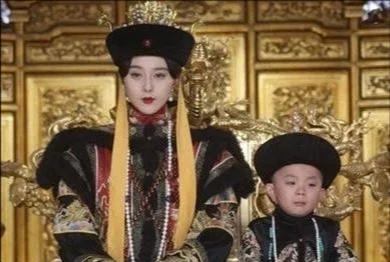What is history: it is the echo of the past to the future, the reflection of the future on the past. - Hugo

February 12, 1912, was a special day.
In the Yangxin Hall of the Forbidden City, Empress Longyu took the six-year-old Xuantong Emperor and convened the last imperial council in Chinese history. In a solemn and oppressive atmosphere, Empress Longyu took over the "Edict of abdication of the Qing Emperor" presented by Yuan Shikai, read it with a gloomy look, and then burst into tears.
The Qing Empire thus silently completed its own journey, and the Edict of the Abdication of the Qing Emperor not only marked the demise of the Qing Dynasty, but also ended China's more than two thousand years of feudal imperial society.
This edict of abdication is not very long, only more than three hundred words, and perhaps the six-year-old Xuantong Emperor does not know what the meaning of the edict is.
The edict of the abdication of the Qing Emperor is reproduced as follows:
Empress Dowager Longyu's will:
Because of the uprising of the People's Army and the response of the provinces, the Nine Summers boiled over, and the lives were ruined, and Yuan Shikai was specially ordered to dispatch personnel and representatives of the People's Army to discuss the overall situation, open the National Assembly, and referendum on the form of government. For two months, there has been no definitive solution. The north and the south are separated from each other, they stand with each other, the merchants quit on the way, the soldiers are exposed to the wild, and the disciples are decided in a day by the national system, so the people's livelihood is uneasy for a day. The psychology of the people of the whole country today is more inclined to the republic, and the provinces in the south and central regions have advocated both the front and the generals in the north, and also advocate the latter, and the people's hearts are desired, and the destiny of heaven can be known. Yu Yi He endured the honor of a surname, and whisked away the likes and dislikes of the people. It is to use the appearance of the general trend, the internal examination of public opinion, the special lead of the emperor to publicize the ruling power to the whole country, designated as a republican constitutional state, close to the heart of the sea disgusted with chaos and hope to govern, far from the ancient holy world as a justice.
Yuan Shikai was elected as the prime minister by the Senior Council, and when the old and new are metabolized, it is advisable to have a way to unify the north and the south, that is, Yuan Shikai will organize a provisional republican government and consult with the people's army on a unified method. In the whole period, the people were blocked, the sea was safe, and the five ethnic groups of the Han Manchus and Mongolians returned to Tibet to complete the territory, for a great Republic of China, to the emperor to retreat to a place of leniency, to travel for a long time, to receive the favor of the people, to see the completion of the rule of Zhi, wouldn't it be yi yi? Thanks.
Who is the author of such an elaborate edict? Empress Longyu was an unsophisticated person, and Emperor Xuantong was only six years old, and neither of them could have written such an article. Most scholars believe that this edict was written by the last emperor Zhang Xiao, although although the edict was written by Zhang Xiao, it also required the consent of Empress Longyu and Emperor Xuantong.
This edict avoided bloody sacrifice, allowed the Qing Dynasty to end in a dignified way, and greatly reduced the cost of the revolution, which can be said to be immeasurable. One of the sentences, "In the general period, the people are blocked, the sea is in peace, and the five ethnic groups of Manchuria, Han, Mongolia, Hui, and Tibet are still completely territorial, and they are a great Republic of China," which is even more guaranteed the unity of the country, of course, this sentence was added at the behest of Yuan Shikai.
Due to the ethnic policy implemented by the Qing Dynasty, the Emperor of the Qing Dynasty was the Manchu- And Mongolian-Tibetan Hui, the common emperor of the five major ethnic groups, which in turn laid the map of modern China.
In the late Qing Dynasty, the League of Sun Yat-sen, Huang Xing, and others put forward the slogan of expelling the Tartars, restoring China, and establishing the Republic of China. In the early days of the League, it was only intended to be "Eighteen Provinces of Han China"; it was only after this that the Republic of the Five Nationalities was proposed.
It was this crucial sentence in the abdication edict that saved the three eastern provinces, Mongolia (including Outer Mongolia), Xinjiang and Tibet, and avoided ethnic divisions and bloody sacrifices.